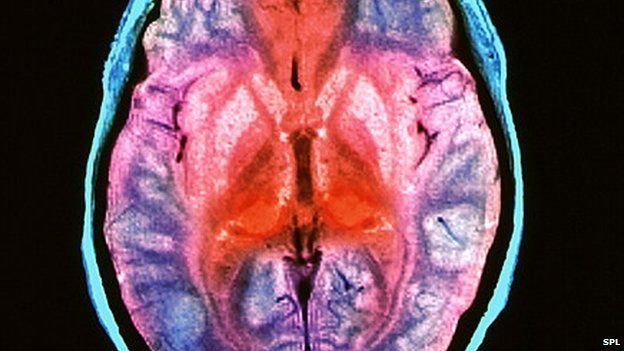Scientists find CJD resistance gene
- Published

Researchers have identified a gene that might make people resistant to the brain eating disease CJD.
The study is part of an effort to find ways of combating a possible epidemic caused by eating BSE infected beef in the 1980s.
It is claimed that the findings could give important insight into other human brain diseases that lead to dementia.
The results have been published in the journal Nature.
Creutzfeldt-Jakob disease (CJD) is a rare but fatal brain disorder.
There are three forms of the disease: sporadic which occurs naturally in the human population; variant CJD (vCJD) caused by eating BSE infected beef and kuru which was once widespread in a remote area Papua New Guinea and was caused by the practice among a particular tribal community called the Fore of eating human brains.
They would eat their dead as a mark of respect at mortuary feasts. This led to a major epidemic of kuru which, at its height in the late 1950's, caused the death of up to 2% of the population each year.
Prof John Collinge at the Medical Research Council's Prion Unit at University College London has been studying kuru for more than 20 years in order to find a treatment for other forms of CJD. He was particularly interested in those people in the Fore who seemed to be resistant to kuru.
Protection
Prof Collinge and his team found that they had a change in one of their genes, called the prion protein gene which he believed might be protecting people against the disease.
To test this, he bred mice with the suspected protective gene. To his surprise he found that the mice were resistant not only to kuru but also to all forms of CJD.
According to Prof Collinge if scientists can now understand how this gene works they could find a way to prevent not only CJD, but other dementias.
"This could provide great insights into how the disease works and ultimately how to stop it," he told BBC News.
There had been fears that tens of thousands of people would die following the emergence of a new form of vCJD in the 1990s from eating BSE infected beef. So far 177 people are thought to have died from the disease in the UK although one in 2,000 people are thought to be carrying the infection.
But according to Prof Collinge, "It is important that we don't drop our guard".
"Thirty thousand people are silently carrying the disease and we don't know whether they will carry on carrying the disease without developing symptoms or go on to develop the disease".
Those with kuru take 50 years to develop the disease after they have become infected. If the same is true of vCJD, says Prof Collinge, it could be several decades before we will know the full extent of BSE exposure"
Follow Pallab on Twitter
- Published15 October 2013
- Published24 July 2014